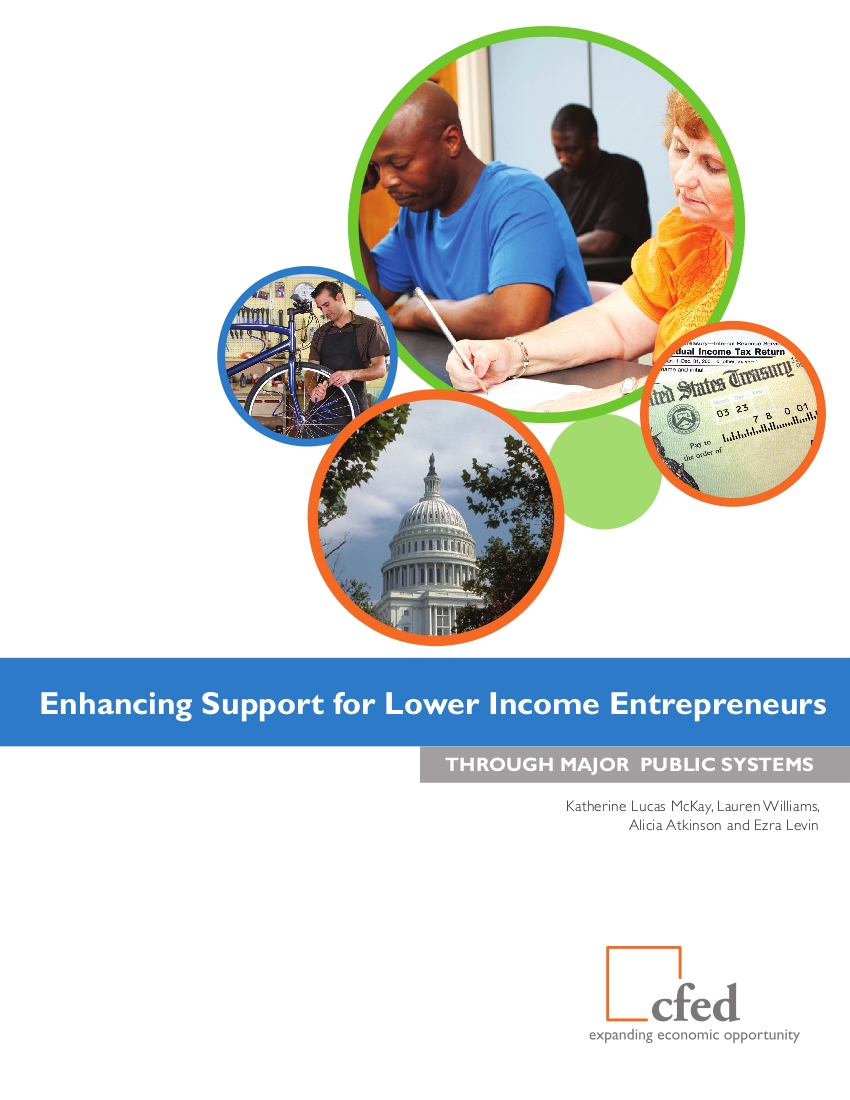Creating and owning a business has long been heralded as a path to financial success and economic mobility. In fact, business equity is the second largest source of household wealth behind home equity. For low- and moderate- income (LMI) individuals, self-employment and business ownership can contribute meaningfully to family economic security. However, LMI entrepreneurs face unique hurdles that can prevent them from successfully growing wealth through their businesses, including low savings, constrained access to capital and limited access to business development services.
Unfortunately, most small business policies are ill-suited to address the issues faced by LMI entrepreneurs, most of whom run microbusinesses (firms with fewer than five employees). In comparison to the magnitude of support for “small business” that benefits firms with dozens of employees and millions of dollars in revenue, the policies and public systems that specifically serve lower-income microbusiness owners are tiny. Policy support for LMI microbusiness is also notably minor in comparison to policies that support other LMI individuals, such as students, workers and parents. Additional policy support is necessary to ensure that the wealth-building and mobility-enhancing aspects of business ownership are meaningful and achievable for entrepreneurs who start with few resources.
This report identifies opportunities for policymakers to ensure that current and aspiring LMI entrepreneurs can successfully start and run businesses that contribute meaningfully to their families’ financial security. We focus specifically on opportunities to embed support for entrepreneurship into major public systems as a strategy to leverage their large scale to reach millions more current and potential LMI microbusiness owners.





